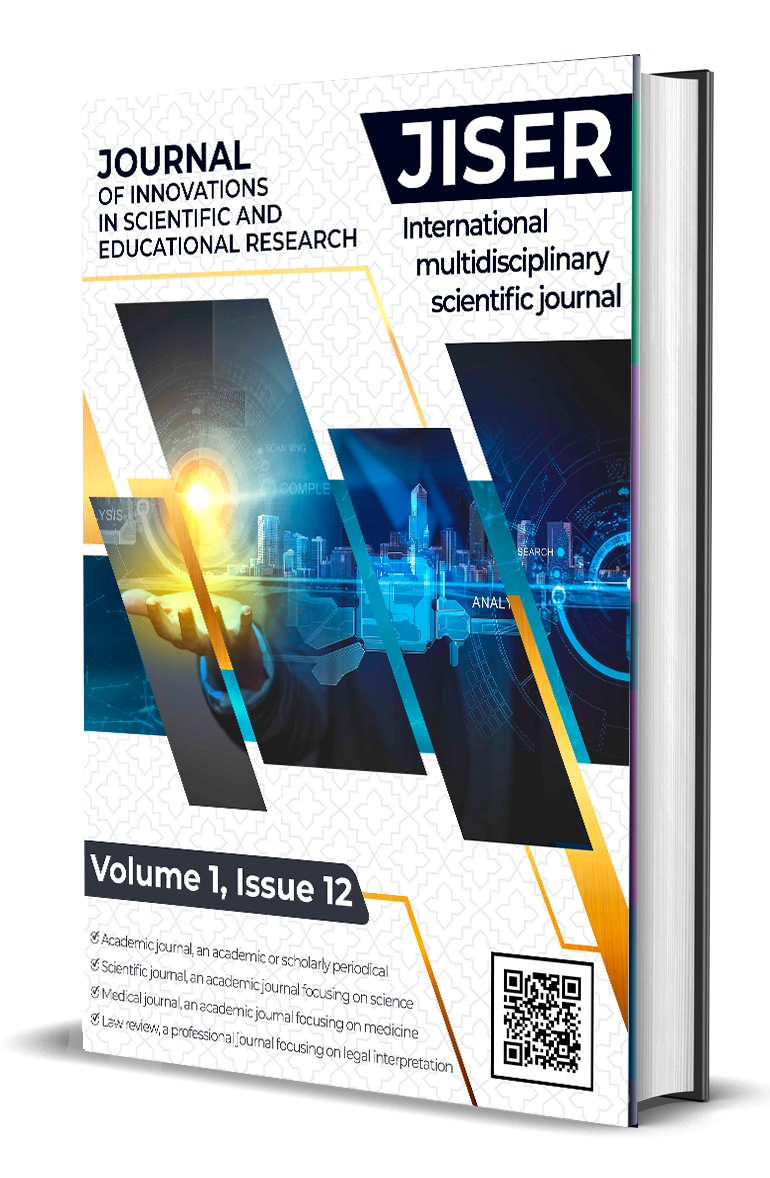FINAL REPORT ON THE TOPIC “THE ROLE OF UZBEKISTAN IN ENSURING SECURITY IN THE CENTRAL ASIAN REGION: AN ANALYSIS FROM A NEOREALIST PERSPECTIVE. GROWING THREATS AND WAYS TO ADDRESS THEM”
Abstract
The modern world is changing at an unprecedented rate. Changes are taking place politically, economically and geographically. The various theories of international relations serve as a tool to understand and analyse all events in the modern world. Analysing these events is not possible without studying and examining them through the prism of international relations theories. Every conflict, war, unprecedented economic growth will be explained by these theories. Ensuring security and stability are key factors in the development of countries. Let us consider and try to analyse the role of Uzbekistan in ensuring security in the Central Asian region. Consider and try to understand why ensuring security and stability are key factors in the development of countries. We will justify why neo-realism is suitable for describing the domestic and foreign policies of Central Asian countries. Consider the growing threats and outline concrete ways to address them.
References
1. Theories of international relations. (2022). Bloomsbury Publishing.
2. Болдуин Д. А. Неолиберализм, неореализм и мировая политика // Вестник Московского университета. Серия 12. Политические науки. 2012. №2. https://cyberleninka.ru/article/n/neoliberalizm-neorealizm-i-mirovaya-politika
3. Walt, Stephen M. “International Relations: One World, Many Theories.” Foreign Policy, no. 110, 1998, pp. 29–46. https://doi.org/10.2307/1149275.
4. Lobell, S. (2017, December 22). Structural Realism/Offensive and Defensive Realism. Oxford Research Encyclopedia of International Studies. https://oxfordre.com/internationalstudies/view/10.1093/acrefore/9780190846626.001.0001/acrefore-9780190846626-e-304.
5. Snyder G. H. Mearsheimer's world: Offensive realism and the struggle for security //The Realism Reader. – Routledge, 2014. – С. 188-196.
6. Ахмедов Хуршид Тулкин Угли Участие Узбекистана в развитии военно-политической интеграции и обеспечении региональной безопасности в центральноазиатском регионе // Постсоветские исследования. 2019. №4. https://cyberleninka.ru/article/n/uchastie-uzbekistana-v-razvitii-voenno-politicheskoy-integratsii-i-obespechenii-regionalnoy-bezopasnosti-v-tsentralnoaziatskom
7. Гарбузарова Елена Геннадьевна Роль И. Каримова в обеспечении центральноазиатской безопасности // ИСОМ. 2016. №5-2. https://cyberleninka.ru/article/n/rol-i-karimova-v-obespechenii-tsentralnoaziatskoy-bezopasnosti
8. Малышева Д. Б. Афганский кризис и постсоветская Центральная Азия //Мировая экономика и международные отношения. – 2017. – Т. 61. – №. 8. – С. 14-23.
9. Boltaev, H. (n.d.). Central Asia’s Relations with Taliban-Ruled Afghanistan. 2024. https://iais.uz/storage/files/1/KmuMEJ-20240304130446%20copy.pdf
10. Изимов Руслан Юсупжанович, Мураталиева Замира Тулкуновна Центральноазиатский трек инициативы «Пояс и путь»: возможности и риски // Вестник международных организаций: образование, наука, новая экономика. 2018. №3. https://cyberleninka.ru/article/n/tsentralnoaziatskiy-trek-initsiativy-poyas-i-put-vozmozhnosti-i-riski
11. Чжочао, Ю., & Грозин, А. (2022). Политика Китая в отношении Центральной Азии. Litres.
12. Джан Лунмэй Цифровая экономика Китая: возможности и риски // Вестник международных организаций: образование, наука, новая экономика. 2019. №2. https://cyberleninka.ru/article/n/tsifrovaya-ekonomika-kitaya-vozmozhnosti-i-riski




